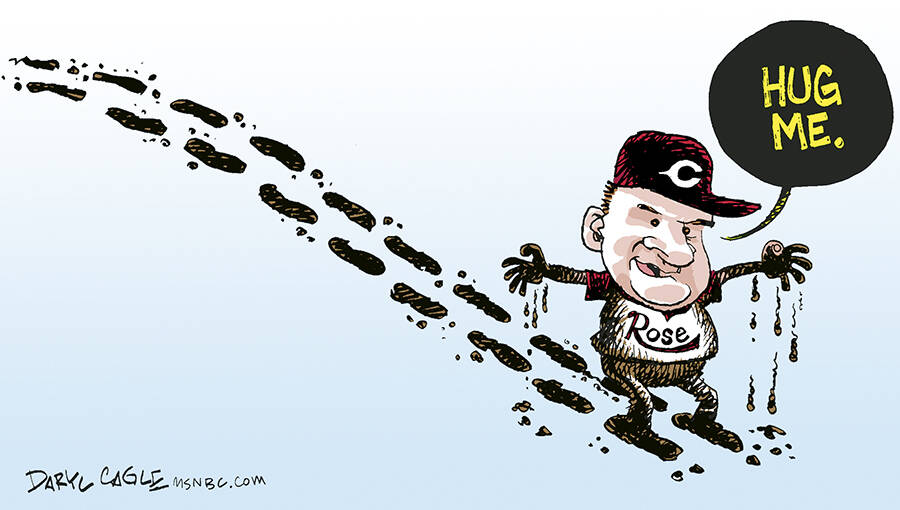I was watching an old documentary the other day about classic Hollywood stars. Henry Fonda, a man who epitomized the stalwart, decent American was the narrator, and he walked us through several decades of famous (and sometimes infamous) actors, from Charlie Chaplin to Natalie Wood.
The interesting thing was that most of the people profiled had a public demeanor that differed radically from the private ones. But in the pre-internet age, only a few of them suffered because of it, even with the restrictive Hays Code, which demanded moral purity from the silver screen.
For example, Errol Flynn was a dashing and desirable swashbuckler who leaped into our hearts in films like “The Adventures of Robin Hood.” But his personal life was a mess, with many wives, alcoholism, accusations of statutory rape and even reports of bestiality. But somehow, his career managed to survive.
Ingrid Bergman was not so lucky. The woman who played the perfect nun in “The Bells of St. Mary” and became the epitome of class, grace and virtue ended up being vilified on the floor of Congress as an adulteress when she left her husband for Italian director Roberto Rossellini. The difference in treatment is likely due in part that she was a woman, and greater virtue was expected from the fairer sex. It also might be attributable to her lack of shame in living her life in the open, with no apologies to disappointed Americans.
We’ve always had heroes with feet of clay, and we’ve always been a little hypocritical about the way we deal with them. It’s hard to understand why we excuse some sins and sinners but crucify others.
Last week, a female reporter from Philadelphia insisted on asking Pete Rose about “rape” allegations. Rose was in Philly being honored along with other members of the 1980 World Series team, and while he’s a controversial character due to the Hall of Fame ban, he didn’t deserve to be saddled with interrogations about his private life. In the first place, it ruined the day for the rest of the team players.
So many athletes and stars have led their lives on the shady side of the street, and yet the majority of them get away with it. Should we go after all the the wife-beating, multiple Baby Mama cavorting, drug snorting basketball stars with the same glee as we do against Rose, who has steadfastly denied that he ever had sex with an underage female? He has admitted to having sex with a 16-year-old, which is gross when you consider how old he was at the time, but not a crime in most states. The allegations of statutory rape are largely unfounded. Interestingly enough, no criminal charges were ever filed. A low bar, true, but when raising these rumors from the dead after decades, it’s a useful consideration (see Cosby, Bill).
The thing that really annoyed me about the attacks on Rose was the continued shadow of MeToo being exploited by a female journalist. For some reason, women (especially female sportswriters) seem to think it’s their obligation to act like Joan of Arc on the equality battlefield, often raising irrelevant issues about greasy retired players who had their glory days before they themselves were even born. Rose may be an amoral old man, but if that was a crime half of Congress would be in jail.
You don’t have to excuse piggish behavior in order to see how wrong it was to make Rose’s history a central part of the Philly commemoration. You don’t have to be a feminist to be annoyed at this female sportswriter’s attempt to insert herself into a story that has nothing to do with remembering a beloved Philadelphia milestone.
And you don’t need to be perfect, to have done something worth honoring. Let’s treat people like Errol, not Ingrid.
Copyright 2022 Christine Flowers, distributed exclusively by Cagle Cartoons newspaper syndicate. Flowers is an attorney and a columnist and can be reached at cflowers1961@gmail.com.



